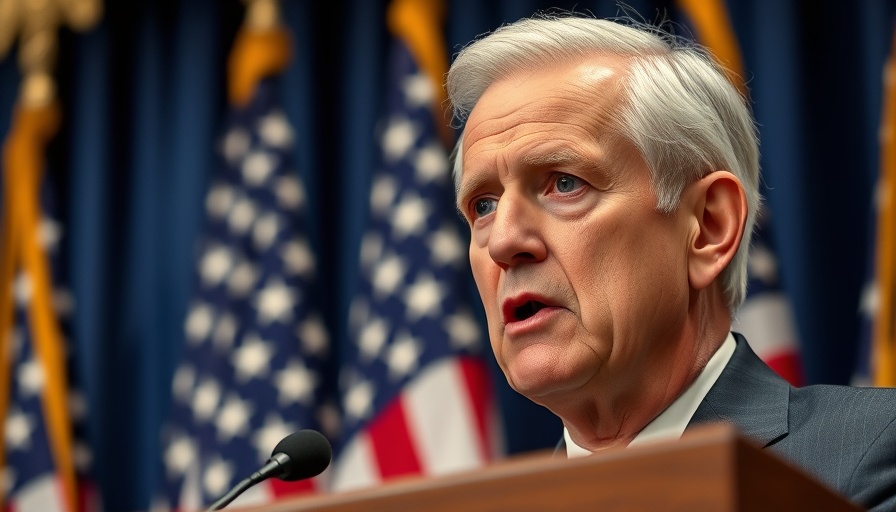
A Critical Ruling: Venezuelan Deportations Continue
In a pivotal decision, U.S. District Judge James Boasberg denied a request on April 18, 2025, to halt the Trump administration from deporting suspected Venezuelan gang members. This ruling is significant as it reflects the ongoing tensions related to immigration policies and the enforcement of the Alien Enemies Act. The American Civil Liberties Union (ACLU) sought an emergency order to protect these individuals, but Boasberg's ruling reinforces the current administration's stance on immigration.
Understanding the Alien Enemies Act
The Alien Enemies Act, enacted during the War of 1812, allows the government to deport any male aliens from countries at war with the U.S. While this statute has rarely been invoked in modern times, its application raises critical discussions about national security versus individual rights. The complexities surrounding this act highlight the challenges local communities face when balancing security and humanitarian considerations.
Venezuelan Immigration: A Growing Crisis
Venezuela's socio-political situation has forced millions to flee their country due to violence, political oppression, and economic instability. The U.N. has documented this crisis as one of the largest migrations in Latin American history. Many Venezuelans seek refuge in the U.S., where they often encounter harsh immigration policies and enforcement actions.
Community Impact: Voices and Concerns
The ruling resonates deeply within communities hosting Venezuelan immigrants. Organizations advocating for immigrant rights argue that such deportations are detrimental not only to the individuals involved but also to the wider community. Families may be torn apart, further complicating their integration into the American social fabric. Accounts from affected families shed light on their struggles and express fears about the potential consequences of such policies.
Legal Precedents and Future Predictions
This case could set important precedents for future legal battles centered on immigration enforcement. As similar requests and legal challenges emerge, observers predict a contentious landscape in immigration courts. Continued debates may push lawmakers to modify existing immigration laws and engage in broader discussions on human rights protections for undocumented individuals, especially those fleeing dire situations.
The Broader Picture: Economic and Social Dimensions
Beyond individual cases, the ruling reflects broader economic and social implications. Immigrant communities often drive local economies, fueling job creation and diversification. By resisting deportation efforts, these communities highlight their inherent value, contributing not only to cultural richness but also to economic resilience.
Confronting Immigration Myths
As the dialogue continues, it’s essential to confront common myths surrounding immigration and crime. Many argue that immigrants, including Venezuelans, contribute positively to society, with extensive studies showing that they are less likely to commit crimes than their U.S.-born counterparts. Understanding this dynamic can create a more informed and humane approach to immigration policy.
Moving Forward: Advocacy and Action Steps
With a fractured immigration landscape, advocacy remains critical. Community organizations urge individuals to engage with local representatives to advocate for humane policies. Awareness campaigns can help reshape the narrative around immigration, leading toward more compassionate legislation.
In conclusion, the U.S. District Judge James Boasberg's recent ruling permits the Trump administration to continue deporting Venezuelan nationals based on immigration laws. As the legal landscape evolves, it is vital for communities to stay informed and actively engage in conversations surrounding immigration policies. The stakes are high, and individual lives are affected. Staying engaged in this discourse will be essential in working towards more humane policies.
 Add Row
Add Row  Add
Add 



Write A Comment